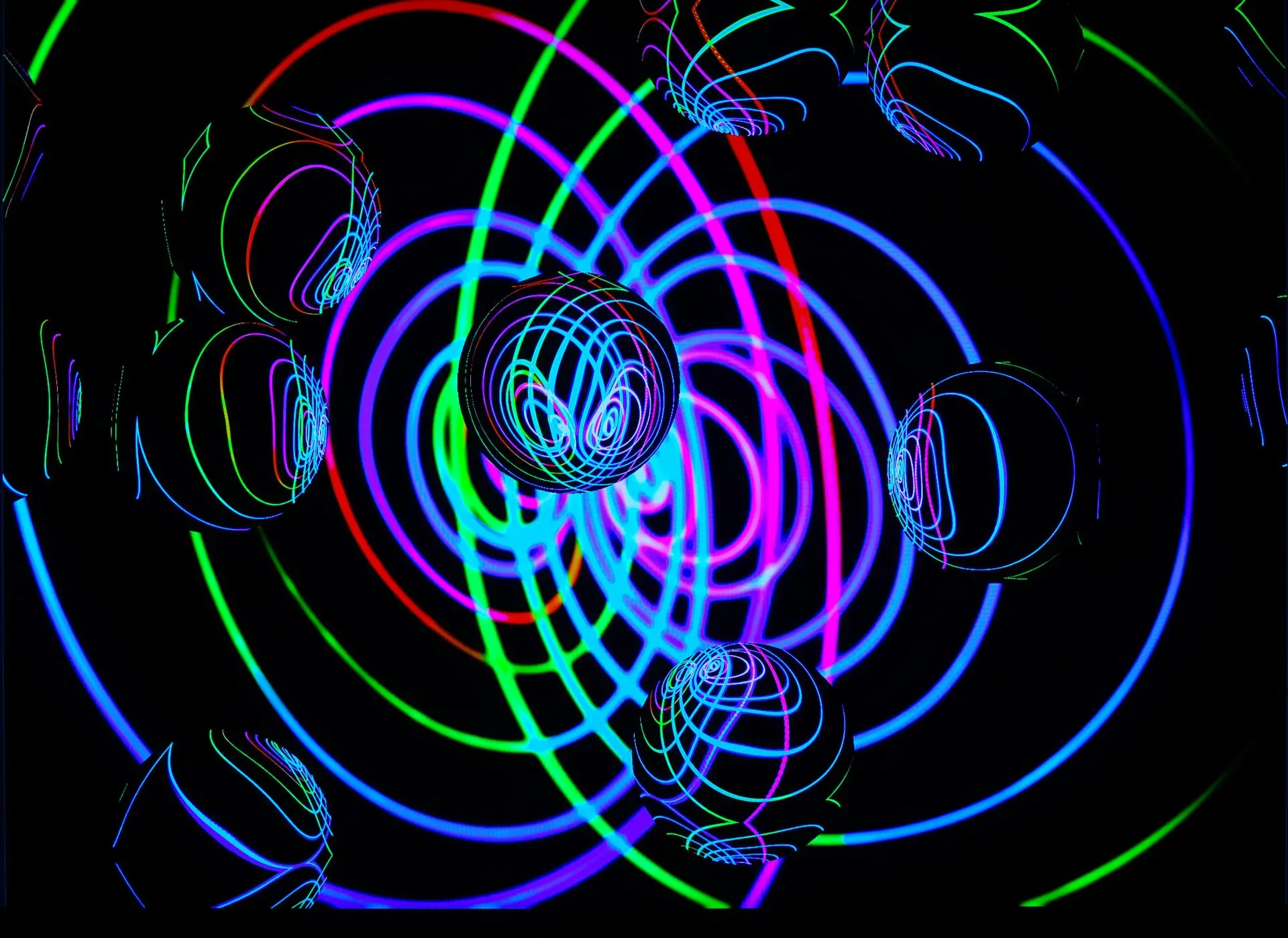Karma and Fate

Looking for more amazing products? Check out our online store and explore our collection here! Happy shopping!
Before diving in, please note: This post is for informational purposes only. If you’d like to know more about how we approach topics, feel free to check out our friendly Disclaimer Page.
Hey there, amazing readers! 
We’re committed to delivering quality posts, and your support (even just sticking around despite the ads) means everything to us. So, bear with us, and thanks for helping us keep the good vibes rolling. Now, on to the fun stuff!
TRANSLATE BUTTON AT THE END OF THE ARTICLE
A Quick Overview
When it comes to understanding the intricacies of life, two concepts that often come into play are karma and fate.
These ideas have deep-rooted origins in Eastern philosophy and have made their way into various belief systems and cultures worldwide.
While karma is often associated with the idea of cause and effect, fate is seen as a predetermined course of events.
In this article, we will delve into the concepts of karma and fate, exploring how they influence our lives, their roles in Hinduism and Buddhism, and whether we can change our destinies.
The Concept of Karma and Fate
Karma and fate are fundamental concepts that have shaped the beliefs and practices of many cultures for centuries.
Karma, derived from the Sanskrit word meaning "action" or "deed," is the idea that our actions have consequences, whether positive or negative.
It is often described as the law of cause and effect, suggesting that our present actions will determine our future experiences.
On the other hand, fate is the concept that our lives are predetermined and that certain events are beyond our control.
While karma focuses on individual actions, fate looks at the broader scope of life’s events.
Understanding Karma in Eastern Philosophy
In Eastern philosophy, particularly in Hinduism and Buddhism, karma plays a significant role in shaping the lives of individuals.
According to these belief systems, every action we take creates a ripple effect that influences our future experiences.
Good actions lead to positive outcomes, while negative actions result in negative consequences.
Karma is not just about the actions we see but also the intentions behind them.
It emphasizes the importance of cultivating positive intentions to create a more harmonious existence.
In essence, karma is a moral compass that guides individuals toward right action.
How Karma Influences Our Lives
Karma is believed to influence various aspects of our lives, including relationships, health, and success.
It is said that the energy we put out into the world through our actions will eventually come back to us in some form.
For example, if we treat others with kindness and compassion, we are likely to receive the same treatment in return.
On the other hand, if we act with malice or deceit, we may face challenges or obstacles.
Understanding the role of karma can help individuals make more conscious choices and lead more fulfilling lives.
Exploring the Notion of Fate
Fate, on the other hand, is often seen as a predetermined course of events that is beyond our control.
While some believe that fate is fixed and unchangeable, others see it as a guiding force that leads us towards our ultimate destiny.
The idea of fate can bring comfort to those facing challenging circumstances, as it suggests that there is a higher purpose to our experiences.
However, it can also be a source of frustration for those who feel trapped by their circumstances and unable to change their destinies.
Fate vs. Free Will: Debunking Myths
The debate between fate and free will has long been a topic of philosophical discussion.
While fate suggests that our lives are predetermined, free will argues that we have the power to make choices and shape our destinies.
In reality, fate and free will are not mutually exclusive concepts.
While certain events may be predetermined, individuals still have the ability to make choices that can alter the course of their lives.
It is the interplay between fate and free will that adds complexity to the human experience.
Understand the Powerful Law of Karma and Its Impact – Explore Here!
The Role of Karma in Hinduism and Buddhism
In Hinduism and Buddhism, karma is a central tenet that underpins the belief systems of these religions.
Both religions emphasize the importance of moral conduct and ethical behavior as a means of accruing positive karma.
In Hinduism, the concept of reincarnation is closely tied to karma, suggesting that our actions in this life will determine our place in the next.
Similarly, in Buddhism, karma is seen as a force that shapes the cycle of birth, death, and rebirth.
By understanding and accepting the role of karma, individuals can strive towards spiritual growth and enlightenment.
Accepting Fate: Coping with Life’s Challenges
While karma encourages individuals to take responsibility for their actions, fate offers a sense of acceptance and surrender to the greater forces at play.
Accepting fate does not mean giving up agency or control but rather acknowledging that some events are beyond our influence.
By accepting fate, individuals can find peace in the face of adversity and navigate life’s challenges with grace and resilience.
It is through this acceptance that individuals can find meaning and purpose in their experiences, no matter how difficult they may be.
Karma in Action: Examples from History
Throughout history, there have been numerous examples of karma in action, both on an individual and collective level.
One famous example is the life of Mahatma Gandhi, whose commitment to nonviolence and truth led to India’s independence from British rule.
Gandhi believed in the power of karma and practiced what he preached, leading by example and inspiring millions around the world.
Similarly, the concept of karma has been evident in various cultures and societies, shaping the course of history and influencing the lives of countless individuals.
Can We Change Our Karma or Fate?
One of the most common questions surrounding karma and fate is whether we can change our destinies.
While some believe that karma is fixed and unchangeable, others argue that we have the power to alter our karma through conscious effort and intention.
By cultivating positive thoughts, actions, and emotions, individuals can create a more favorable karmic balance and attract positive outcomes into their lives.
Similarly, the concept of fate can be seen as a guiding force that offers opportunities for growth and transformation.
While we may not always be able to change our circumstances, we can choose how we respond to them.
The Interplay Between Karma and Destiny
Karma and destiny are closely intertwined concepts that work hand in hand to shape our lives.
While karma refers to the actions we take in the present, destiny is the ultimate outcome that awaits us.
Our karmic actions influence our destiny, shaping the path we walk and the experiences we encounter along the way.
By understanding the interplay between karma and destiny, individuals can gain insight into the deeper meaning of their lives and find clarity in times of uncertainty.
Ultimately, it is through this understanding that we can navigate the complexities of life with greater wisdom and compassion.
Does Belief in Karma Shape Our Reality?
Belief in karma can have a profound impact on how we perceive and experience the world around us.
Those who embrace the concept of karma often feel a greater sense of accountability for their actions and their impact on others.
This heightened awareness can lead to more mindful decision-making and a deeper sense of interconnectedness with all beings.
By recognizing the role of karma in shaping our reality, individuals can cultivate a more positive and compassionate outlook on life.
It is through this belief that we can create a more harmonious and fulfilling existence for ourselves and those around us.
Embracing Karma and Fate: Finding Meaning
In the grand scheme of life, karma and fate offer us a framework through which to navigate the complexities of our existence.
While karma encourages us to take responsibility for our actions and intentions, fate reminds us of the larger forces at play in the universe.
By embracing both concepts, we can find meaning and purpose in our experiences, no matter how challenging they may be.
Through self-reflection, compassion, and acceptance, we can learn to work with the energies of karma and fate to create a life that is aligned with our highest ideals.
It is through this process of embracing karma and fate that we can unlock the secrets to a more meaningful and fulfilling life.
Conclusion
In conclusion, karma and fate are powerful forces that shape the fabric of our lives and influence the course of our destinies.
While karma emphasizes the importance of individual actions and intentions, fate offers a sense of acceptance and surrender to the greater forces at play.
By understanding the interplay between karma and fate, individuals can find meaning and purpose in their experiences, navigate life’s challenges with grace and resilience, and create a more harmonious and fulfilling existence.
Ultimately, it is through embracing the concepts of karma and fate that we can unlock the secrets to a more meaningful and purposeful life.

The Enlightenment Journey is a remarkable collection of writings authored by a distinguished group of experts in the fields of spirituality, new age, and esoteric knowledge.
This anthology features a diverse assembly of well-experienced authors who bring their profound insights and credible perspectives to the forefront.
Each contributor possesses a wealth of knowledge and wisdom, making them authorities in their respective domains.
Together, they offer readers a transformative journey into the realms of spiritual growth, self-discovery, and esoteric enlightenment.
The Enlightenment Journey is a testament to the collective expertise of these luminaries, providing readers with a rich tapestry of ideas and information to illuminate their spiritual path.
Our Diverse Expertise
While our primary focus is on spirituality and esotericism, we are equally passionate about exploring a wide range of other topics and niches 

To ensure we provide the most accurate and valuable insights, we collaborate with trusted experts in their respective domains 
Understand the Powerful Law of Karma and Its Impact – Explore Here!
Our blog originally focused on spirituality and metaphysics, but we’ve since expanded to cover a wide range of niches. Don’t worry—we continue to publish a lot of articles on spirituality! Frequently visit our blog to explore our diverse content and stay tuned for more insightful reads.
Hey there, amazing reader! 
Check out our store here and take a peek at some of our featured products below! Thanks for being awesome!














